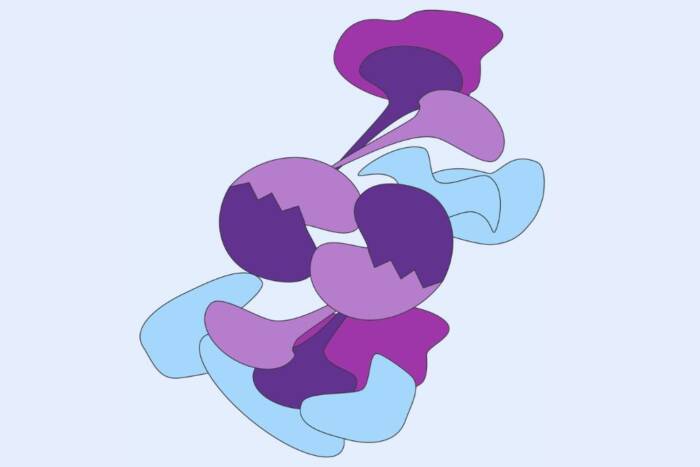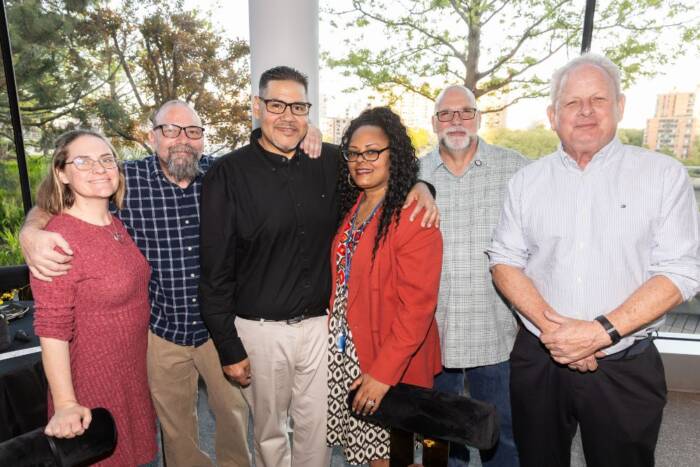Lewis Thomas Prize Honors Freeman Dyson
Award by The Rockefeller University recognizes scientists as poets
Mathematical physicist and author Freeman Dyson will receive the 1996 Lewis Thomas Prize, which honors scientists for their artistic achievements, from The Rockefeller University.
“The Lewis Thomas Prize recognizes the scientist whose voice and vision can tell us of science’s aesthetic and philosophical dimensions, who gives us not merely new information but cause for reflection, even revelation as in a poem or painting,” explains Nobel laureate Torsten N. Wiesel, M.D., president of the university.
Dyson, professor emeritus of physics at the Institute for Advanced Study in Princeton, N.J., will receive the prize from Wiesel during ceremonies at the university beginning at 5:30 p.m. on Wednesday, May 22. Dyson also will discuss “Samuel Gompers and William Blake.”
Dyson, recipient of the 1981 Wolf Prize in physics and many other honors, is the fourth person to receive the Lewis Thomas Prize, established in 1993. The late Lewis Thomas, M.D., an award-winning author and scientist who served in many positions including dean of the New York University School of Medicine and president and chancellor of the Memorial Sloan-Kettering Cancer Center, received the prize in 1993. In 1994, the university presented the prize to Nobel laureate, molecular geneticist and author François Jacob, M.D., Ph.D. In 1995, Abraham Pais, Ph.D., professor emeritus at Rockefeller and an eminent physicist and science writer, received the prize.
“Dyson’s writings are celebrated for their intellectual range and stylistic elegance,” says Wiesel. Of Dyson’s 1979 autobiography, Disturbing the Universe, The New Yorker wrote: “Everywhere enriched by the work of poets, it stands as the deepest and most readable account of the personal choices, influences, and interior guides of a productive scientist yet to see print.” In addition to numerous articles for publications such as The New Yorker and Scientific American, Dyson wrote Weapons and Hope, an examination of nuclear weapons, in 1984, Origins of Life in 1986, Infinite in All Directions in 1988 andFrom Eros to Gaia, an anthology of his lectures and magazine articles, in 1992.
Born in 1923 in Crowthorne, Berkshire, England, Dyson received his bachelor of arts degree in mathematics from the University of Cambridge in 1945. He completed fellowships at Cambridge’s Trinity College from 1946 to 1947, at Cornell University in 1947 and at the University of Birmingham from 1949 to 1951. He returned to Cornell to become a professor of physics in 1951, leaving in 1953 to join the Institute for Advanced Study.
Dyson is a fellow of the Royal Society, a member of the U.S. National Academy of Sciences, a corresponding member of the Bavarian Academy of Sciences, a honorary fellow of Trinity College and an Associé Etranger de l’Académie des Sciences.
Among his numerous awards and honors, Dyson received the Oersted Medal from the American Association of Physics Teachers, the Phi Beta Kappa Award in Science for Infinite in All Directions and the National Books Critics Circle Award for nonfiction.


